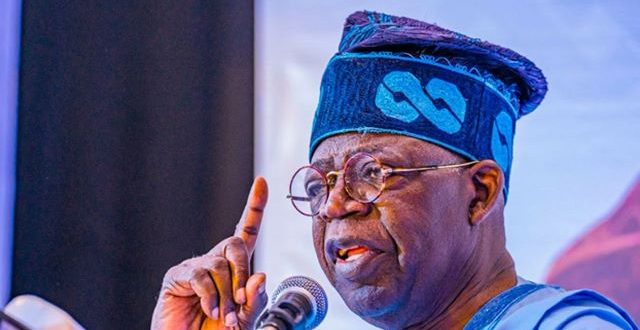733
By Myke Agunwa
President Bola Ahmed Tinubu has reaffirmed his commitment to stimulating economic growth through a new tax regime that will not only provide relief to low-income earners and eliminate inefficiencies in the fiscal structure but also cut bureaucracy in tax administration.
The president is scheduled to sign four bills—the Nigeria Tax Bill (Fair Taxation), the Nigeria Tax Administration Bill, the Nigeria Revenue Service (Establishment) Bill, and the Joint Revenue Board (Establishment) Bill into law today.
Making these assertions in his verified X handle to clear doubts on the nature of the four landmark tax reform bills he is signing into law today (Thursday), he said that they are designed to bring tangible relief to ordinary Nigerians, restore fairness in the tax system, and stimulate inclusive economic growth.
Describing the legislation as a decisive break from the past, President Tinubu stated that the reforms are tailored to ease the burden on working families, small businesses, and low-income earners while eliminating inefficiencies that have long plagued Nigeria’s fiscal structure.
“These reforms go beyond streamlining tax codes,” the President said in a personal message shared via his verified X handle, @officialABAT, on Thursday morning.
“They deliver the first major, pro-people tax cuts in a generation, targeted relief for low-income earners, small businesses, and families working hard to make ends meet,” he assured.
According to him, they are intended to unify Nigeria’s previously disjointed tax regime, cut bureaucratic red tape, and make revenue collection more transparent and efficient.
“For too long, our tax system has been a patchwork—complex, inequitable, and burdensome. It has weighed down the vulnerable and shielded inefficiency. That era ends today,” Tinubu noted.
President Tinubu explained that the reforms would not only simplify the tax system but also serve as a tool for national renewal, delivering economic justice and rebuilding trust between the government and the governed.
“We are laying the foundation for a tax regime that is fair, transparent, and fit for a modern, ambitious Nigeria. A tax regime that rewards enterprise, protects the vulnerable, and mobilises revenue without punishing productivity”, he stated.
Emphasising that the legislation is not merely about technical adjustments but a broader reimagining of Nigeria’s fiscal culture, the President declared: “We are not just signing tax bills but rewriting the social contract. We are not there yet, but we are firmly on the road.”
He added that the new framework would not only ease life for citizens but also enhance investor confidence and position Nigeria as a competitive destination for business and innovation.
“We are also building a framework for the Nigeria of tomorrow — leaner, fairer, and laser-focused on unlocking opportunities for all,” he said.
The President commended the Presidential Fiscal Policy and Tax Reform Committee for its “tireless work,” praised the National Assembly for a “rigorous review process,” and thanked state governments for their “critical contributions” just as he appreciated the Nigerian people for keeping faith with his Renewed Hope Agenda.



